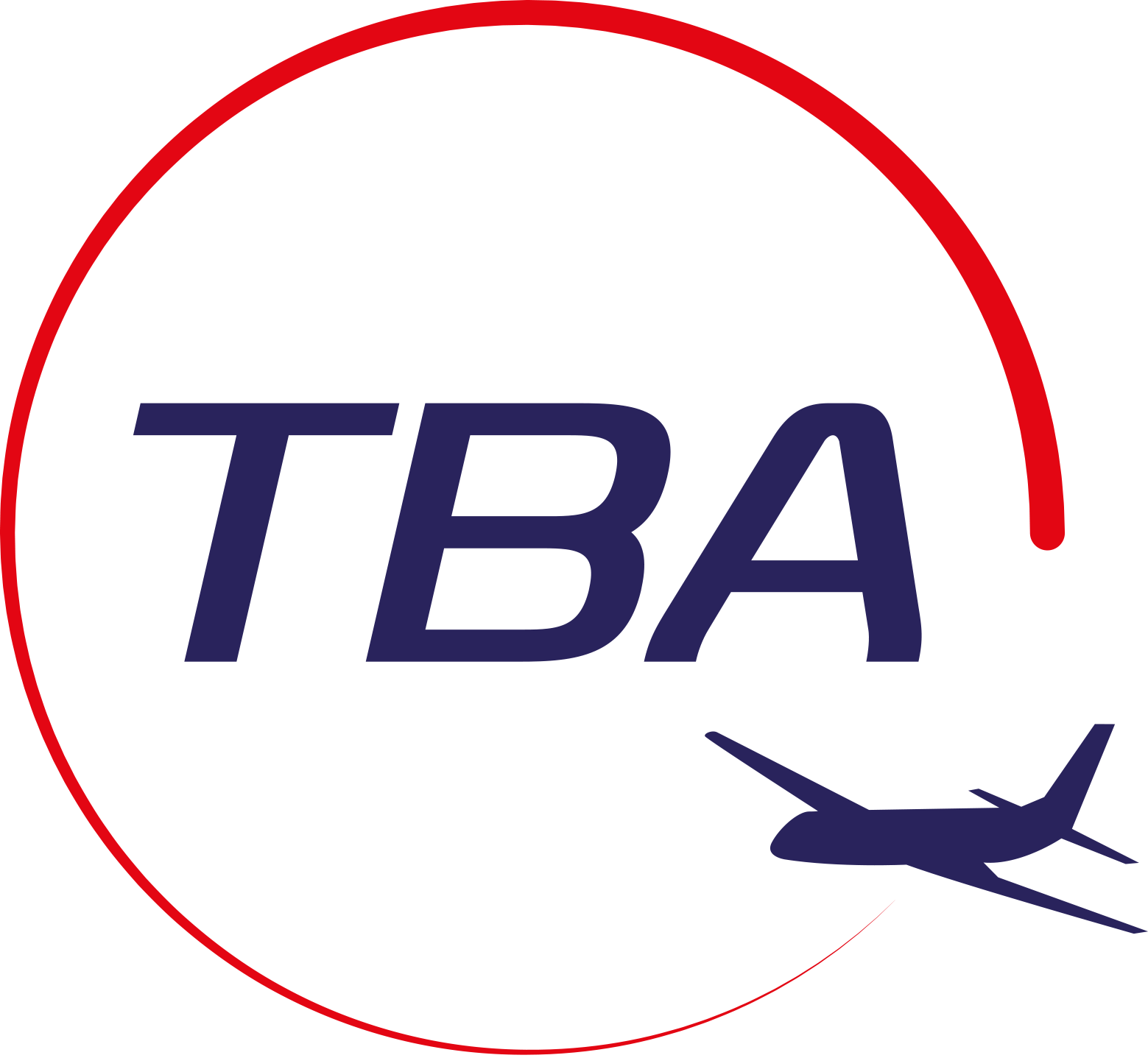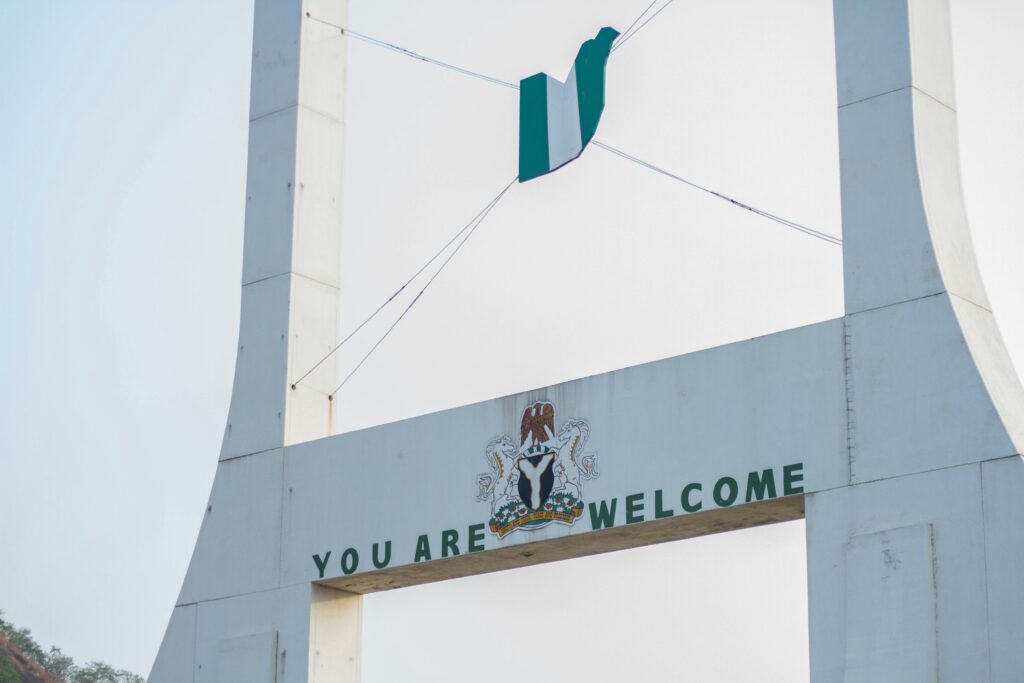
Research and knowledge are the first steps for Nigeria Travel Business Assistance. Here is a fact file for Nigeria to get you started. Contact us if you are looking to start a business in or expand your market to Nigeria. We have consultants ready to help you on the ground in Nigeria.
Basic Facts
Origin of the name: The name Nigeria was taken from the Niger River running through the country. This name was allegedly coined in the late 19th century by British journalist Flora Shaw, who later married Baron Frederick Lugard, a British colonial administrator. The origin of the name Niger, which originally applied only to the middle reaches of the Niger River, is uncertain. The word is likely an alteration of the Tuareg name egerew n-igerewen used by inhabitants along the middle reaches of the river around Timbuktu prior to 19th-century European colonialism.
History & Independence: Evidence of human occupation in Nigeria dates back thousands of years. The oldest fossil remains found by archaeologists in Nigeria, near Akure, have been dated to about 9000 BCE. Inhabited for thousands of years, the region was the centre of the Nok culture from 500 BCE to 200 CE and of several precolonial empires, including Kanem-Bornu, Benin, and Oyo. The Hausa and Fulani also had states. Visited in the 15th century by Europeans, it became a centre for the trade in enslaved people. The area began to come under British control in 1861 and was made a British colony in 1914. Nigeria gained independence in 1960 and became a republic in 1963.
Government: Nigeria is a federal republic in the sense that there is both a national government and governments of its 36 states and it utilizes the form of government in which the people hold power, but elect representatives to exercise and utilize that power with the executive power exercised by the president. The president is the head of state, the head of government, and also the head of a multi-party system.
Official Language: In Nigeria, the official language and most widely spoken lingua franca is English, which was the language of Colonial Nigeria.
Indigenous Languages: There are over 525 native languages spoken in Nigeria. Nigerian Pidgin – an English-based creole – is spoken by 30 million people in Nigeria. The major native languages, in terms of population, are Hausa (over 80 million speakers), Yoruba (over 54 million speakers), Igbo (over 42 million speakers), Efik-Ibibio cluster (over 15 million), Fulfulde (13 million), Kanuri (5 million), Tiv (5 million), Nupe (3 million) and approximately 2 to 3 million each of Karai-Karai Kupa, Kakanda, Edo, Igala, Idoma and Izon.
Population: Estimations of the Nigeria population are of 230,842,743 inhabitants (2023 estimates). This is the largest population of any African nation and the sixth in the world.
Time Zone: Nigeria currently observes West Africa Time (WAT) all year. Daylight Saving Time is not used here.
Climate: Nigeria is characterized by three distinct climate zones, a tropical monsoon climate in the south, a tropical savannah climate for most of the central regions, and a Sahelian hot and semi-arid climate in the north of the country. The central regions are governed by a well-defined single rainy season (April to September) and dry season (December to March). The dry season is influenced by the Harmattan wind from the Sahara. Coastal areas experience a short drier season with most rain occurring over March to October. Annual rainfall can reach up to about 1200 mm. In the north, rain only falls from June to September in the range of 500 mm to 750 mm. The rest of the year is hot and dry. Northern areas have a high degree of annual variation in its rainfall regime, which results in flooding and droughts. Mean annual temperature for Nigeria is 26.9°C , with average monthly temperatures ranging between 24°C (December, January) and 30°C (April). Mean annual precipitation is 1,165.0 mm. Rainfall is experienced throughout the year in Nigeria, with most significant rainfall occurring from April to October and with minimal rainfall occurring November to March.
Borders: Nigeria neighboring countries are Benin to the West, Cameroon to the East; Chad across its namesake lake to the North East; Niger to the north. To the south lies a Coastline 853 km long with the Atlantic Ocean.
Size: Total Nigeria area is of about 923,768 sq km of which land: 910,768 sq km and water: 13,000 sq km. Nigeria is slightly more than twice the size of Sweden, or slightly more than twice the size of California.
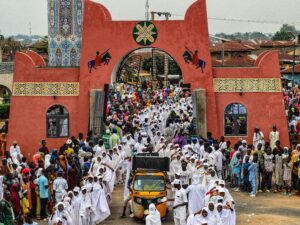 Religion: According to a 2018 report, the population is estimated to be 53.5% Muslim, 45.9% Christian (10.6% Roman Catholic and 35.3% protestant and other Christian), and 0.6% as other.
Religion: According to a 2018 report, the population is estimated to be 53.5% Muslim, 45.9% Christian (10.6% Roman Catholic and 35.3% protestant and other Christian), and 0.6% as other.
Currency: The naira (sign: ₦; code: NGN) is the currency of Nigeria. One naira is divided into 100 kobo. Also, a Central bank digital currency named eNaira was was launched and activated on 25 October, 2021 by then President Muhammad Buhari. The eNaira serves as both a medium of exchange and a store of value and claims to offer better payment prospects in retail transactions when compared to cash.
Current exchange rate is of 787.395 Nigerian Naira to US Dollar, or 982.704 Nigerian Naira to Great British Pound.
https://www.oanda.com/currency-converter/en/?from=NGN&to=USD&amount=787.395
https://www.oanda.com/currency-converter/en/?from=NGN&to=GBP&amount=982.704
History and Key Events
Precolonial & colonial Era
- 11th Century onwards – Formation of city states, kingdoms and empires, including Hausa kingdoms and Borno dynasty in north, Oyo and Benin kingdoms in south.
- 1472 – Portuguese navigators reach Nigerian coast.
- 16-18th Centuries – Slave trade sees Nigerians forcibly sent to the Americas to work on plantations.
- 1809 – Islamic Sokoto caliphate is founded in north.
- 1850s – British establish presence around Lagos.
- 1861-1914 – Britain consolidates its hold over the Colony and Protectorate of Nigeria, governs through local leaders.
- 1850s – Britain establishes presence, which it consolidates over the next 70 years as the colony and protectorate of Nigeria.
- 1922 – Part of former German colony Kamerun is added to Nigeria under League of Nations mandate.
Independence
- 1960 – Independence, with Prime Minister Sir Abubakar Tafawa Balewa leading a coalition government.
- 1966 – Maj-Gen Johnson Aguiyi-Ironsi forms military government. He is later in a coup by Lt-Col Yakubu Gowon.
- 1967 – Eastern region governor Lt-Col Emeka Ojukwu declares the region independent, as the Republic of Biafra. This precipitates the 30-month Nigerian Civil War.
- 1975 – Gen Gowon overthrown by Gen Murtala Ramat Mohammed, who begins process of moving federal capital to Abuja.
- 1976 – Gen Mohammed assassinated is replaced by his deputy, Lt-Gen Olusegun Obasanjo, who helps introduce US-style presidential constitution.
- 1979 – Obasanjo and the military hand over power to civilian rule in US-style presidential elections.
- 1983 – Maj-Gen Muhammadu Buhari seizes power.
- 1999 – Return to civilian rule, with former military ruler Gen Obasanjo elected president.
- 2015 – Muhammadu Buhari wins presidential election – first opposition candidate to do so.
- 2019 – Muhammadu Buhari has been re-elected for a second four-year term
- 2023 – Bola Tinubu, of the the ruling All Progressives Congress (APC), wins the February 2023 presidential elections
Nigerian Food
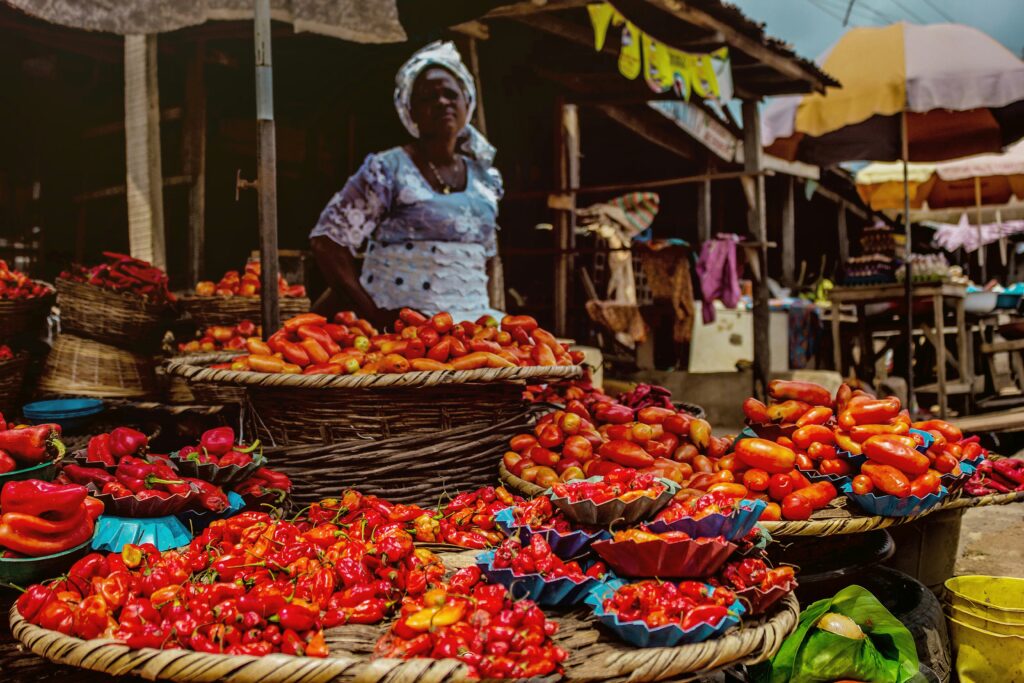
Nigeria has one of the best cuisines in the world, which comprises dishes or food items developed by the numerous ethnic groups that make up the population. Nigerian cuisines, like those of other West African countries such as Ghana and the Benin Republic, contain spices and herbs alongside palm or groundnut oil to produce richly-flavored sauces and soups with an enticing aroma. Nigerian dishes are typically rich in protein. Various types of meat, such as beef, mutton, chicken, and different fish, are often prepared with local variations, of course. Also, seafood such as prawns, periwinkles, clams, snails, and crabs are popular ingredients in soups and stews in the south.
Ogbono Soup is an iconic Nigerian soup that is said to be one of the easiest to prepare. It is made from the bush mango seed (a wild mango variant) with oil, meat, stockfish, dried fish, and other seasonings. Ogbono soup is customarily served with Eba, fufu, or pounded yam.
Nkwobi This is a traditional soup from the Igbo people of Eastern Nigeria. Nkwobi is prepared from the head and legs of a cow. It’s garnished with Utazi leaves and palm oil and is often enjoyed with a glass of palm wine, which is said to aid digestion.
Egusi Soup This is one of the most popular soups in Nigeria, especially during celebrations when it’s prepared in many households. Egusi soup is prepared from processed melon seeds, and ingredients such as stockfish, red oil, meat, vegetables, seafood, onions, and other condiments. The soup is served with pounded yam, garri, amala, etc.
Efo Riro is a typical Yoruba dish. It’s a quick and straightforward way to prepare and enjoy fresh, green, and leafy vegetables, such as spinach or pumpkin leaves, with beef, chicken, or smoked fish. Efo riro makes a great partner for African fufu such as Eba (garri), Semo, and Amala. It is reputed to have health benefits because it is rich in iron and can help treat iron deficiency anemia.
Abacha and Ugba: Abacha is prepared from cassava, which is cooked, then grated before being sun-dried. The resulting flakes are used to prepare Abacha. This delicious delicacy is made with sliced Ugba (oil bean seed) and fresh local vegetables. It is mainly served with fried fish and ponmo.
Akara Known as Kosai in the country’s Northern region, Akara is a tasty bean cake deep-fried in palm or groundnut oil. The beans are first soaked in water to remove the skin and then ground to a mash that is then deep-fried. Another kind of Akara can also be prepared by frying grated water yam.
Afang Soup Afang soup is traditionally associated with the Efik tribe of Southern Nigeria. It comprises vegetables, meat, stockfish, and seafood such as prawns and periwinkles. Leafy greens such as afang or okazi leaves are customarily used to prepare this delicious soup. Due to their toughness, they’re finely chopped before cooking. Afang soup is best served with Eba, fufu, or pounded yam.
Nigerian Fried Rice Nigerian fried rice is a delicious dish made with stir fry vegetables and parboiled long-grain rice marinated in chicken stock. It is known as the sibling of jollof rice, and they are often served side-by-side with fried or roasted chicken at owanbes (Nigerian wedding parties), Christmas gatherings, or Sunday outings.
Things to do and see in Nigeria
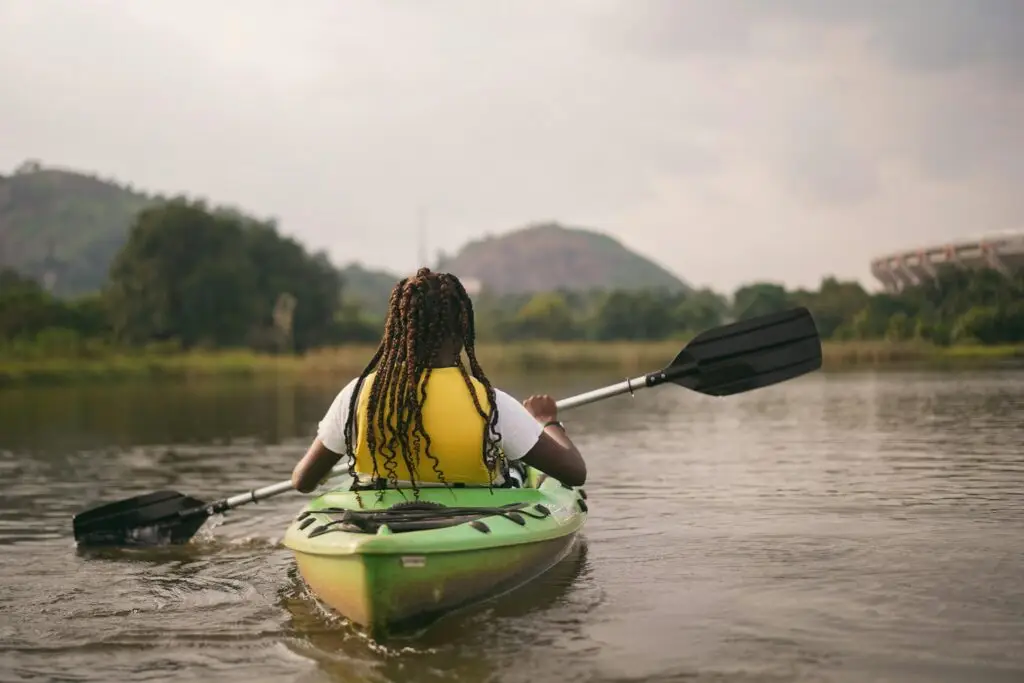
Discover the Heartbeat of Africa: Nigeria! Immerse yourself in a rich tapestry of culture, history, and vibrant landscapes as we unveil the myriad of captivating experiences awaiting you in this diverse nation. From bustling metropolises to serene natural wonders, our guide to the best things to see and do in Nigeria promises an unforgettable journey through a land where tradition meets modernity. Explore the enchanting blend of ancient traditions, bustling markets, and breathtaking scenery that make Nigeria a must-visit destination. Join us on a virtual tour of this dynamic country, and let the adventure begin!
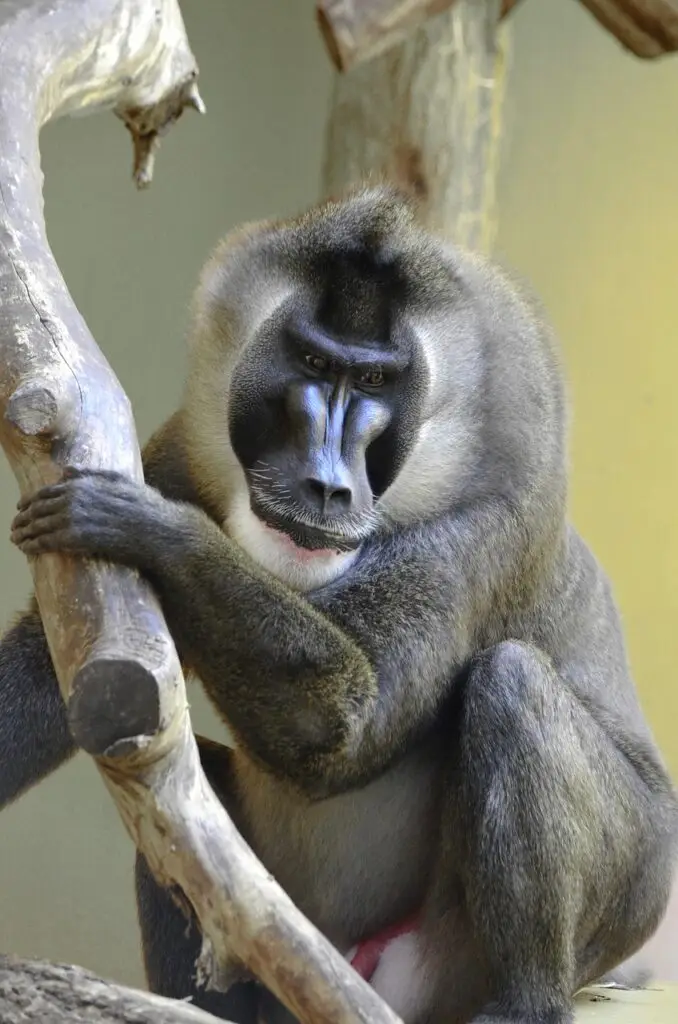
Tinapa Business Resort: is a resort district, 10 km outside of Calabar, in the Cross River State, Nigeria. Think of Las Vegas, but with a Nigerian twist. Casinos, Water parks, retails stores, and an amphitheater. A movie Production Studio commonly referred to as “Studio Tinapa” or “Nollywood”. It is set to become the most modern film production studio in Nigeria. Tinapa is a microcosm of leisure and entertainment.
The Osun Sacred Grove is situated on the outskirts of the city of Osogbo, is one of the last remnants of primary high forest in southern Nigeria. Regarded as the abode of the goddess of fertility Osun, one of the pantheons of Yoruba gods, the landscape of the grove and its meandering river is dotted with sanctuaries and shrines, sculptures and art works in honor of Osun and other deities.
Queen Amina’s Wall In the city of Zazzau (Zaria) was built well-fortified walls to protect the ancient city by Queen Amina of Zaria, who is renowned for her wise military exploits and strategies so many years. This wall still stands majestically in the modern city of Zaria. These walls were built by Queen herself and are made from earthen walls to fortify each of her military camps. The walls became the prototype for the fortifications used in all Hausa land.
The Eyo festival, also known as the Adimu Orisa play is a festival common among Yoruba people, specifically the indigines of Lagos. Eyo festival is a traditional masquerade display that serves as a tourist attraction for people all over the world. The Eyo festival is a tourist event and it is performed on Lagos Island (Isale Eko).
Wikki Warm Spring, Yankari National Park, eastern Nigeria is the largest of the 4 warm springs in Yankari. It is a natural spa with constant temperature of 31.1°C through the year during both day & night, crystal clear & 13 meters wide, 2 meters deep perfect for a swim. Dimmil, Gwana, & Mawulgo are the other springs.
Nike Art Gallery Lagos: tells its story from the outside. The fence of the compound is adorned with rare marbles, while its walls are covered in different artistic inscriptions and drawings. From the inner courtyard of the gallery where you’ll find the stone sculptures, tie-dye workshop and hanging craftworks, to the wide variety of art displayed inside the magnificent structure, you can rest assured that your love for Nigerian art will go through the roof.
Esie Museum is Nigeria’s first official museum of its kind. It is renowned for the collection of its eight hundred plus soapstone figurines. Aside from these soapstone figurines, there are over two thousand other artefacts that are housed in the museum.
The Durbar Festival is a colourful ceremony held annually in the northern part of Nigeria. The festival features various horse-riding performances by men from different cities across the north including Kano, Katsina, Sokoto, Zazzau, Bauchi and Bida. The festival was originally associated with wartime allegiance, and a parade of horsemanship before the Emir to flaunt the readiness and loyalty of his regiments.
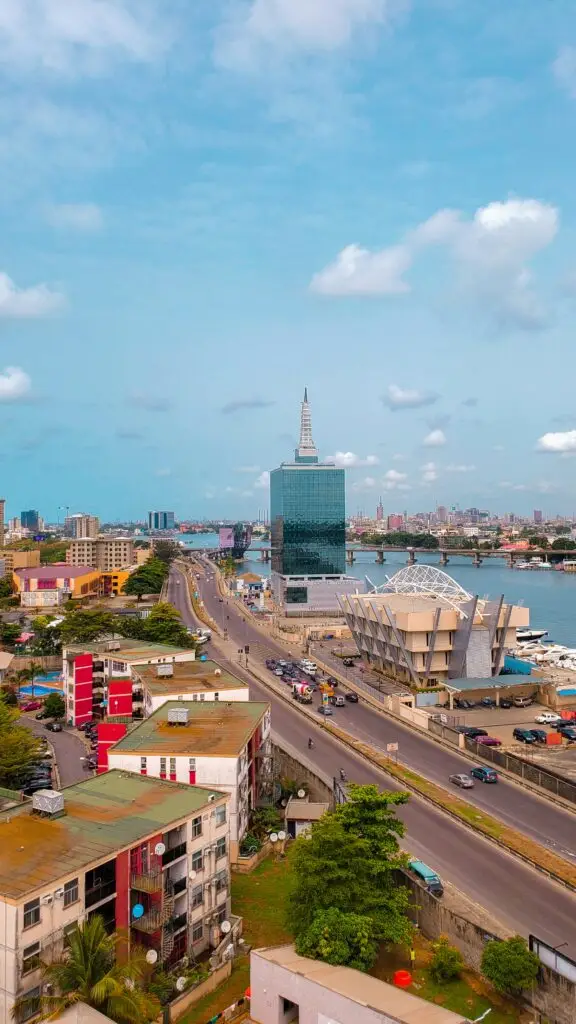
Economy: An African Giant
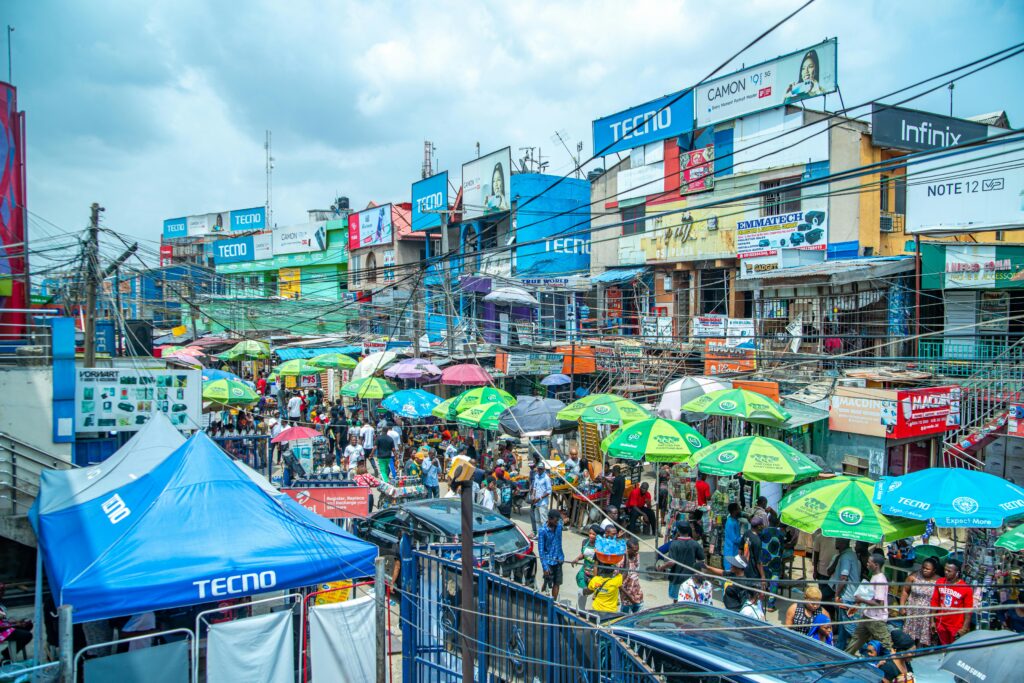
Given its resource endowments and market opportunities, Nigeria is uniquely placed for strong economic growth. Nigeria is rich in agricultural and mineral resources. Its population of about 200 million people presents a huge market—the largest in Africa—for domestic production. In addition, a large segment of Nigeria’s labor force is young and entrepreneurial—5.3 million people entered the labor force in 2018 alone. Moreover, market access to other member countries of the Economic Community of West African States (ECOWAS) and the wider African region offers opportunities to Nigeria’s private enterprises. Three key features of Nigeria’s economy uniquely position the country for a strong non-oil sector growth that leverages the private sector. First, the country’s rich agricultural and mineral resource base provides the opportunity to significantly expand food manufacturing and resource-based manufacturing, especially in the lagging North. Second, Nigeria’s relatively large, fast-growing, and urban domestic population, and regional integration with ECOWAS, provide a ready market base for Nigerian food products, consumer goods, building materials, and services (such as financial, transportation, and digital). Third, with a large, young entrepreneurial population, Nigeria is well-positioned to increase productivity and innovation through digital entrepreneurship.
Doing Business in Nigeria
Ease of Doing Business Index Scores
Overall score: 56.9 (2020)
Starting a business score: 86.2 (2020)
Trading across Borders score: 29.2 (2020)
Enforcing Contracts score: 61.5 (2020)
Legal System: Nigeria has a mixed legal system comprising of English common law, Sharia and customary law. Alongside English common law, judicial precedents, predominantly from the Supreme Court, also form a key part of the legal system. Nevertheless, certain rulings and legislation are not universally and rigidly applied. Customary law is often applied for members of ethnic groups particularly concerning personal and family matters, whilst twelve northern states have introduced a Sharia legal system. The principal feature of this is the introduction of religious based criminal offences as well as punishments sanctioned by the Qur’an; the Supreme Court has yet to rule upon the constitutionality of these punishments.
Company creation procedures:
- Reserve a unique company name at the Corporate Affairs Commission (CAC)
- Prepare the requisite incorporation documents and pay the stamp duty. To prepare the requisite incorporation documents, the business founders must complete the statutory forms, prepare and print the memorandum and articles of association, and have them stamped by the Federal Inland Revenue Service (FIRS) or online.
- Sign the declaration of compliance before a Commissioner for Oaths or a Notary Public
- Register the company at the Corporate Affairs Commission, pay registration fees and receive the income tax and VAT registration number pay registration fees
- Make a company seal
- Register for personal income tax PAYE at the State Tax Office
- Register business premises with the Lagos State Government and pay the business premises levy at the bank
Nigerian Investment Promotion Commission
Nigerian Investment Promotion Commission is an agency of the Federal Government established to encourage, promote and coordinate investments in Nigeria. The One Stop Investment Centre, houses 27 Government agencies, and provides investment facilitation services, reduce time required to process regulatory approvals and permits and assist with information and requirements from incorporation to expansion.
The missions assigned to this commission are the following:
- Be the agency of the Federal Government to co-ordinate and monitor all investment promotion activities to which this Act applies;
- Initiate and support measures which shall enhance the investment climate in Nigeria for both Nigerian and non- Nigerian investors;
- Promote investments in and outside Nigeria through effective promotional means;
- Collect, collate, analyze and disseminate information about investment opportunities and sources of investment capital, and advise on request, the availability, choice or suitability of partners in joint-venture projects;
- Register and keep records of enterprises to which this Act applies;
- Identify specific projects and invite interested investors for participation in those projects;
- Initiate, organize and participate in promotional activities such as exhibitions, conferences and seminars for the stimulation of investments;
- Maintain liaison between investors and Ministries, Government Departments and Agencies, institutional lenders and other authorities concerned with investments;
- Provide and disseminate up-to-date information on incentives available to investors;
- Assist incoming and existing investors by providing support services;
- Evaluate the impact of the Commission in investments in Nigeria and make appropriate recommendations;
- Advise the Federal Government on policy matters including fiscal measures designed to promote the industrialization of Nigeria or the general development of the economy; and
- Perform such other functions as are supplementary or incidental to the attainment of the objectives of the Act.
Why invest in Nigeria
- Biggest Economy in Africa: Nigeria could be the faster growing economy to 2050 and could move up the GDP rankings, to 14th by 2050, if it can diversify its economy away from oil and strengthen its institutions and infrastructure.
- Fast Growth Prospects
- Large & Growing Population: It is forecasted that Nigeria will reach rank No3 of Most populous countries in world, just behind India and China, and ahead of United states and Indonesia. Population would then be of about 140 million inhabitants.
- Strategic Market
- Commitment to Improving Business Environment
- Subnational Doing Business Reforms
- Strategically Located
- Compendium of Investment Incentives in Nigeria is the product of a collaboration between Nigerian Investment Promotion Commission and Federal Inland Revenue Service. The Compendium is a compilation of fiscal incentives in Nigerian tax laws and sector-wide fiscal concessions duly approved by the Federal Government and supported by legal instruments. NIPC is working with other agencies of government to increase awareness of investment opportunities in Nigeria amongst investors, to promote investments in Nigeria to domestic and foreign investors, and to facilitate new and incremental investments.
Investment Opportunities:
- Agriculture: Nigeria is blessed with large tracts of arable land which makes agriculture an important sector of the economy with high potential for employment generation, food security and poverty reduction. Although the sector was largely dominated by subsistence farming, with improved seedlings, modern farming methods and better weather forecasting, agricultural yields have continued to grow.
- Industry: Nigeria is a natural location for a variety of industrial activities due to the availability of natural resources, affordable labor cost and large market. Its manufacturing sector is reemerging due largely to the improving performance of the consumer and household goods industries. It produces a large proportion of goods and services for the West African subcontinent.
- Services: Nigeria is one of the most open services markets in Africa, receiving an overall rated score of 27.1 (virtually open) on the Services Trade Restrictions Index (STRI) published by the World Bank. The Nigerian services sector has remained resilient amidst hard-hitting economic circumstances. The strength of the sector has hinged on its consumer-facing nature which have seen it grow into a significant economic force. Over the last decade, the sector has met pent-up consumer demand and served a fast-growing middle class. Buoyed by government policies and increased private investments, growth in the sector has driven the diversification of the economy.
Nigerian Success Stories
Eko Atlantic project: Eko Atlantic is an entire new coastal city being built on Victoria Island adjacent to Lagos, Nigeria. It is a focal point for investors capitalizing on rich development growth based on massive demand. Standing on 10 million square meters of land reclaimed from the ocean and protected by an 8.5-kilometer-long sea wall, Eko Atlantic will be the size of Manhattan’s skyscraper district. The first phase of the Eko Atlantic City was inaugurated in Lagos 2013 at an event which attracted some top dignitaries. Former President of America, Bill Clinton; President of Nigeria, Goodluck Jonathan; were among those who graced the occasion.
The Dangote Refinery is an oil refinery owned by Aliko Dangote that was inaugurated on the 22nd of May 2023 in Lekki, Nigeria. When in full operation, it is expected to have the capacity to process about 650,000 barrels per day of crude oil, making it the largest single-train refinery in the world. The investment is over 19 billion US dollars. The refinery will meet 100% of the Nigerian requirement of all refined products and also have a surplus of each of these products for export. Dangote Petroleum Refinery is a multi-billion dollar project that will create a market for $21 billion per annum of Nigerian crude. It is designed to process Nigerian crude with the ability to also process other crudes.
Health
A passport, visa, and proof of vaccination against Yellow Fever are required for entry into Nigeria.
It is strongly recommended that you visit a travel vaccination clinic and get other vaccinations and a prophylaxis for malaria.
COVID-19
You no longer need to produce a COVID-19 vaccination certificate or a negative PCR test prior to or on your arrival to Nigeria.
Immigration
Visit the Embassy of Nigeria website and or the nearest Nigerian embassy or consulate for tourist visa information and document requirements for work visas.
Application for Nigerian Visas can now be completed online from anywhere on the globe. Application guidelines are also available online. Additional information on e-visas available at following link:
Nigerian Lifestyle and Pop-culture
Afrobeats (also known as Naija beats): When the originator of Afrobeat, Fela Anikulapo Kuti, first came up with Afrobeat music back in late 60s Nigeria, never would anyone have foreseen the rise of West African music to its current form. In the past few years, the young sound of Africa has managed to travel beyond boundaries: not just entertaining listeners, but creating a sense of pride about the continent. While Afrobeats was a term originally coined in the UK, its Afro-inspiration – or origin of the music and beat – is simply high energy and rhythmic drum patterns that make you move.
Nollywood, the Nigerian film industry, is quickly becoming a global phenomenon. From its humble beginnings in 1992 to its current status as one of the world’s most successful and influential industries, Nollywood is changing how we view filmmaking. Nollywood is the second largest film industry in the world after Bollywood in India. Nollywood produces more than 2,000 movies each year and has an estimated annual revenue of $1.2 billion, making it one of the most prolific film industries in the world. The Nigerian film industry has its roots in the country’s rich oral tradition. For centuries, Nigerians have been telling stories through song and dance. This tradition continues today in Nollywood films, which often incorporate traditional music and dance into their storylines.
Nigeria Travel Business Assistance
Are you planning to move your business to Nigeria or open up Nigeria as a new market? Perhaps there is a conference in Nigeria you need to attend and you need some help. We are here for your Nigeria Travel Business Assistance.
